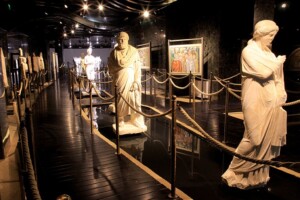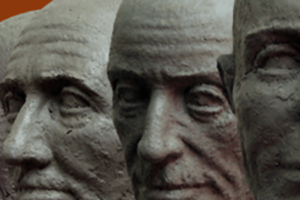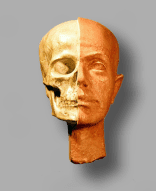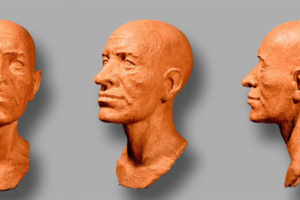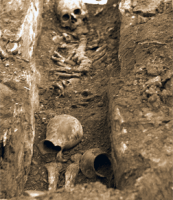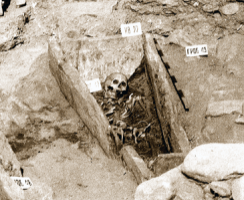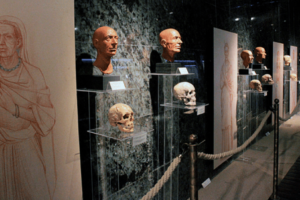
Anthropology began in 1983, within the former Archaeological Museum of Macedonia. Through anthropological research the physical appearance of human beings in the past is reconstructed, as well as their movements and the changes in paleo-demographic characteristics of the population through time. Thus in turn are reconstructed the living conditions, ethno-genetic and anthropogenic processes across prehistoric and historic periods, as well as the paleo-pathological image of human beings in Macedonia.
Anthropological analysis of more than 15,000 skeletons from hundreds of archaeological sites was carried out. In chronological order, the most important prehistoric sites are the following: Markova Sushica and Hipodrom, Skopje; Vodovrati and Ulanci, Veles; Varvara, Skopje; Milci and Vardarski Rid, Gevgelija; Dedeli, Valandovo. From the ancient period: Stobi, Veles; Scupi, Skopje; Marvinci, Valandovo; Otoshnica and Opila, Kriva Palanka. From the medieval period: Demir Kapija; Vinichko Kale; Pepelishte and Bistrenci, Negotino; Dunje, Prilep; Orta Dzamija and Vodoca, Strumica; and Plaoshnik, Ohrid.
Several exploratory multi-year projects have been conducted, such as: “Anthropological characteristics of the medieval population from Crkvishte – Demir Kapija”, “The anthropological profile of the ancient population of Stobi”, ” Medieval population of Orta Dzamija and Vodoca – Strumica” and “The population of Scupi”. The results were presented in five monographs and fifty articles in professional journals.
In 2004 the exhibition titled ” Man in the Past in Macedonia” was presented, with two and three-dimensional reconstructions of faces (sculptures and drawings) of thirteen previously selected individuals, which chronologically belonged from the Neolithic to the medieval period, as well as reconstruction of clothing, decoration and weapons in the past.
The skeletal collection was formed from finds discovered by the Museum of Macedonia, and from several thousand specimens with pathological traces, which are kept in the depot of the institution.
Dr. Fanica Veljanovska – anthropologist, custodian advisor.
fveljanovska@yahoo.com

